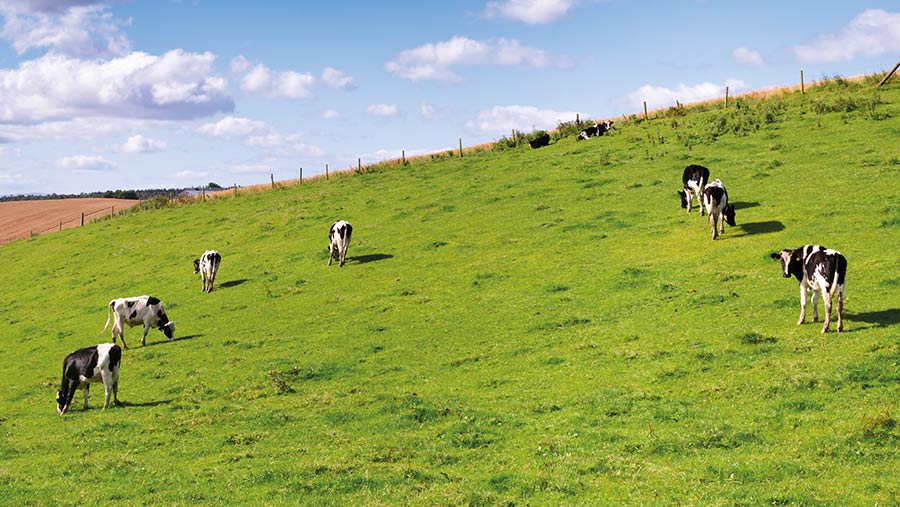Opinion: Don’t be cowed into taking cattle off the land
 © Dmitry Naumov/Adobe Stock
© Dmitry Naumov/Adobe Stock Questions have been raised in many quarters about whether grass-fed cattle are better for us than grain-fed cattle, and indeed whether we should be rearing animals for human consumption at all.
On the first matter, it would be a brave soul who would argue that grain-feeding of livestock is anything other than an expedient to maximise yield.
Yet it has to be accepted that the slightly frightening efficiencies of mass production have provided a rich diet to millions of people who would otherwise have been unable to afford it.
See also: Myth buster – the BBC’s anti-meat programme examined
About the author

Rory Stone heads up his family’s Highland Fine Cheeses business in Ross-shire, Scotland.
Here he argues strongly in favour of grass-fed dairy, while maintaining a sense of balance in the food, environment and animal welfare debate.
There will always be a place for grain, soya and concentrates when winter prevents outdoor grazing.
But the monotony of a strictly grain diet, as practised in giant US feedlots, is a major contributor to emissions of methane, a potent greenhouse gas.
Grass-feeding, where it is possible – as in temperate, wet climates such as Scotland’s – is clearly preferable in terms of nutrition, the environment and animal welfare.
All beef is nutritious, but grass-fed beef is significantly more so than grain-fed.
Grass-fed is the only kind of beef that contains conjugated linoleic acid, a type of fat that might be very important for preventing weight gain. It also contains more fat-soluble vitamins A and E.
So, in Scotland, it would appear that we are blessed.
But there are voices – attentively listened to within government circles – which say we should be taking cattle off the land and letting it revert to its wild and natural state.
The only sensible answer to that is that the best way to maintain grassland is to graze it, to help maintain its composition and structure.
Many varieties of plants and animals depend on this for their very survival. Grazing animals also naturally fertilise the land.
Removing livestock from grassland will not lead to some sort of Edenic harmony, with butterflies and bluebirds.
The grasses will topple over, suffocate and matt, upsetting the delicate balance that plants, birds and insects require.
The over-promotion of organic and vegan schools of thought is also rampant at the moment, fuelled by the seemingly inexhaustible energy of single-issue pressure groups.
But some warning signs are flashing, and there is a creeping realisation that throwing away the accumulated agricultural wisdom of generations to placate a vociferous minority might not be mankind’s best ever idea.
Take the example of Sri Lanka, which earlier this year boiled over into anarchy and chaos as people protested against the government of president Gotabaya Rajapaksa.
Anger was directed against his decision to impose strict organic farming methods on the idyllic Indian Ocean island and, when tourist revenue evaporated during the pandemic, to double down and ban the use of all fertilisers.
For this, he was initially fêted in the West and world leaders were lining up for selfies with him.
Then reality got in the way. The rich and varied produce for which Sri Lanka is famed fell away by 20%.
Production of rice, on which most of the population depend, fell by 50%. People began to starve.
This is not to say that either side of a contentious argument has a monopoly on virtue, but it is an important reminder that, as we seek ways to feed our ever-increasing numbers, we must maintain a sense of proportion.
Instead of trying to demonise cattle and milk production, it might be better to seek ways to balance health, nutrition and animal welfare in a way that is acceptable to the great majority of people.
